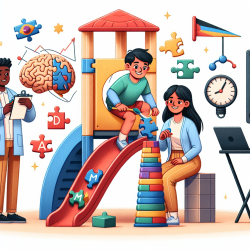As educational psychologists, we are always seeking innovative and effective methods to support the diverse needs of students. In recent years, the emergence of online therapy, particularly in the realm of speech therapy telepractice, has sparked significant interest and curiosity within the educational community. This blog aims to explore the research-driven benefits of online therapy services provided by companies like TinyEYE, and how these services can be seamlessly integrated into school settings to enhance student outcomes.
Online therapy, also known as telehealth, has revolutionized the way therapeutic services are delivered. Research has consistently shown that online therapy can be just as effective, if not more so, than traditional in-person sessions. Here are some key findings from recent studies:
- Accessibility: Online therapy breaks down geographical barriers, making it possible for students in remote or underserved areas to receive high-quality therapy services. This is particularly beneficial for schools that struggle to find qualified therapists locally.
- Consistency: Telepractice ensures that students receive consistent therapy sessions, even during circumstances that might disrupt traditional in-person therapy, such as inclement weather or school closures.
- Engagement: Many students find online therapy sessions more engaging due to the use of interactive digital tools and resources. This increased engagement can lead to better outcomes and higher levels of student participation.
- Cost-Effectiveness: Schools can save on costs associated with travel and physical space requirements by opting for online therapy services. These savings can be redirected towards other essential educational resources.
- Data-Driven Insights: Online platforms often come with integrated data tracking and reporting features, allowing therapists and educators to monitor progress and adjust interventions in real-time.
Given these compelling benefits, it is no surprise that many schools are considering the integration of online therapy services. However, successful implementation requires careful planning and collaboration. Here are some steps educational psychologists can take to ensure a smooth transition:
- Conduct a Needs Assessment: Evaluate the specific needs of your student population and determine how online therapy can address those needs. This may involve surveys, focus groups, or consultations with teachers and parents.
- Select a Reputable Provider: Choose a provider like TinyEYE that has a proven track record of delivering high-quality online therapy services. Look for providers that offer comprehensive training and support for school staff.
- Prepare Your Team: Provide training and resources for teachers, administrators, and parents to ensure they understand the benefits and logistics of online therapy. This will help build buy-in and support for the program.
- Monitor and Evaluate: Regularly assess the effectiveness of the online therapy program through data analysis and feedback from students, parents, and teachers. Use this information to make any necessary adjustments and improvements.
In conclusion, the research-driven benefits of online therapy are clear. By embracing this innovative approach, educational psychologists can help schools provide consistent, engaging, and effective therapy services to students, regardless of their location. The next step is to take action—conduct a needs assessment, select a reputable provider, prepare your team, and continuously monitor and evaluate the program. Together, we can ensure that all students have access to the support they need to thrive.
If you are curious to learn more about how TinyEYE can support your school's therapy needs, we invite you to reach out and explore the possibilities of online therapy. Your students deserve the best, and together, we can make it happen.










